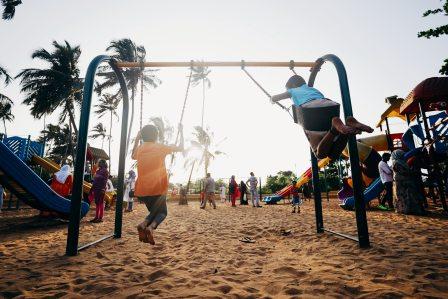New Delhi, March 25: In an attempt to ensure better
protection and adoption of children, the Lok Sabha on Wednesday passed Juvenile
Justice (Care and Protection of Children) Act 2015 that seeks to strengthen the
provisions of legislation and ensure that any appeal on adoption should be
disposed of within four weeks from the date of filing the appeal.
Summing up the debate on the bill Union Minister of Women and Child Development Smriti Zubin Irani said that the amended bill would address various issues that a panel that had looked into the working of the Juvenile Justice (Care and Protection of Children) Act, 2015 has raised. She said the purpose of the bill is to provide protection to children living in childcare set ups and also those who were rescued from various places.
The bill seeks to amend the Juvenile Justice (Care and Protection of Children) Act, 2015 which contains provisions related to children in conflict with law and children in need of care and protection.
The Bill has the provisions to include measures for strengthening the child protection structure and is particular about serious offences making provisions that such crimes will be included as offences for which maximum punishment is imprisonment of more than seven years, and minimum punishment is not prescribed or is of less than seven years.
Offences which are punishable with imprisonment between three to seven years will now be non-cognizable means any arrest under this provision cannot be made without arrest warrant.
The clauses of the bill say any person aggrieved by an adoption order passed by the District Magistrate may file an appeal before the Divisional Commissioner, within 30 days from the date of passage of such order. Such appeals should be disposed of within four weeks from the date of filing of the appeal.
The government planned for the amendment in the Bill after an audit of more than 7,000 childcare institutes being run in India to find loopholes in their functioning, the Minister said, adding almost 90 per cent of them are run by NGOs.
Irani said it was found that 29 per cent of the institutions were not registered adding there are many states where 26 per cent institutes have no women employees, 15 per cent don't have separate beds for the child, among other discrepancies.
"One fourth said that child welfare committees had not visited ever in these institutions," the Minister said, adding "the amendment I am pushing aimed that we should not wait for a child to become a victim".
The Minister stressed on the need for supervision of every institution through the Bill and said that with the passage of the amended bill, government has given full powers to District Magistrate in adoption related cases.

